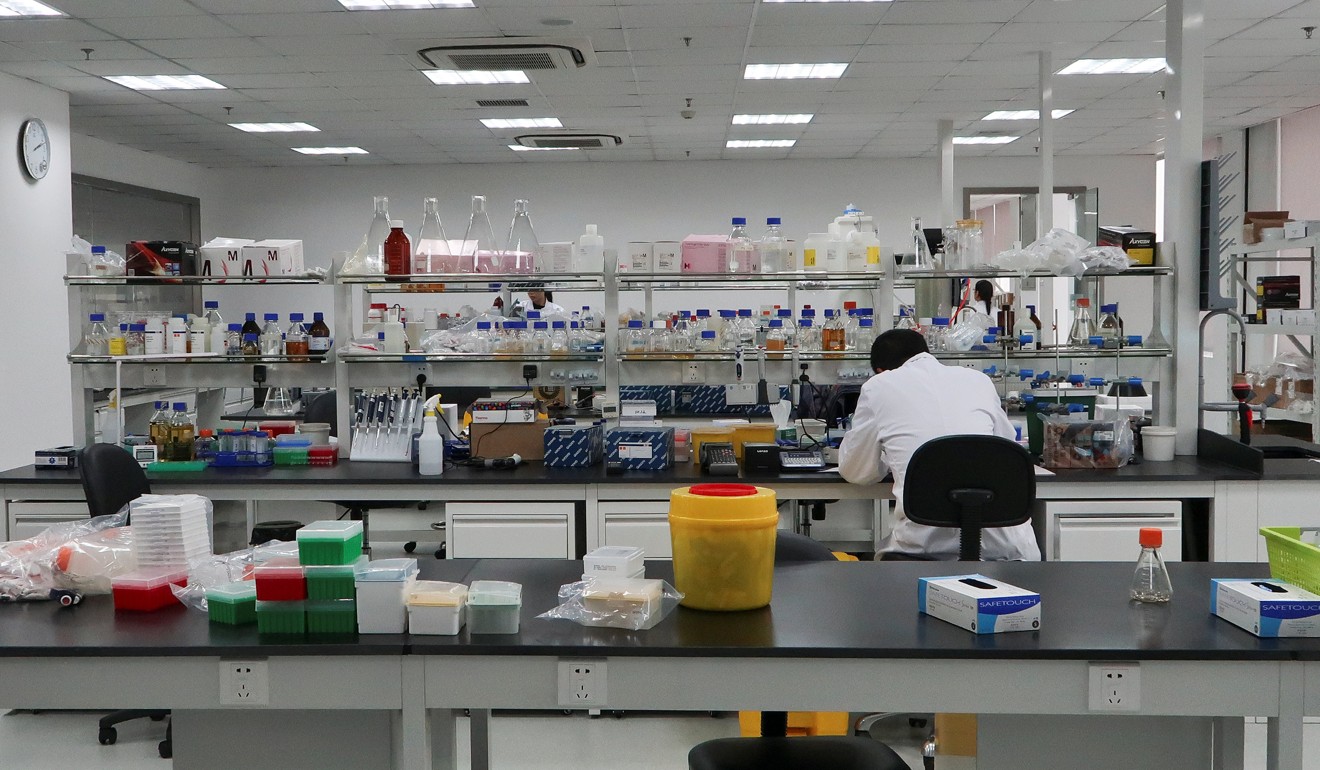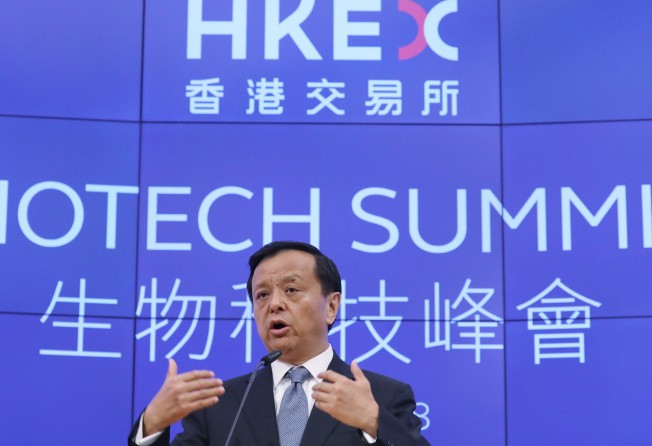
Reward and risk: the two faces of Hong Kong’s new listing rules for biotech firms
Allowing biotech firms to list in the city before they generate revenue is a bonus for the firms, but investors need to be aware of the pitfalls

Hong Kong’s impending move to allow biotechnology firms to list on the city’s stock market before they generate any revenue is a bonus for companies, but for investors new to the sector a healthy dose of risk awareness is needed, according to industry executives.
Bao Jun, the chief business officer and acting chief financial officer of Beijing Shenogen Pharma Group, which had considered listing on the Nasdaq market in the US, now plans to list in Hong Kong as soon as this year, followed by a listing on a mainland China bourse when it meets requirements there.
“Hong Kong can provide a unique opportunity the mainland won’t be able to provide [for some time],” Bao said on the sidelines of a biotech summit organised by exchange operator Hong Kong Exchanges and Clearing (HKEX) last week.
“We have a few projects that we want to license to US partners and build global branding,” Bao said. “Compared to the US, Hong Kong has no time zone difference for communication with investors, yet it also provides good connections with potential partners in the West.”
Greater access to international investors’ funds, the lack of currency flow controls and the fact that the Hong Kong dollar is tied to the US dollar are advantages sought by some mainland firms to facilitate investment deals with overseas investors and partners, he noted.
Mainland China stock exchange officials have held initial talks with major investors and with management of some of China’s top biotech firms about possibly letting some of them list by exempting them from current profit track record requirements, in a move seen to be aimed at stemming the flow of domestic firms seeking listings abroad.
Shenogen has a liver cancer drug under phase-three clinical trials, with another three cancer medications expected to enter phase-three trials this year. It expects to close a fifth round of private fundraising of 500 million yuan (US$79.3 million) next month, after raising US$84 million and 300 million yuan in previous rounds.
The chief executive of HKEX, Charles Li Xiaojia, said last week that the first listings under the revamped rules could happen as early as this summer. The bourse operator closed a market consultation exercise on Friday on changes to its listing rules – which would also allow firms with multiple classes of shares carrying different voting rights to list for the first time – as it seeks to attract more global firms and better compete with other exchanges.
Under the planned changes, biotech firms must have a minimum market value of HK$1.5 billion (US$191 million) by the time they list, as well “durable” patents, at least one “sophisticated” investor and at least one drug that has passed phase-one trials with approval to start phase two.
A survey by Bayhelix, an industry body whose members are mostly health care and life science professionals of Chinese heritage, found that 98 of 125 respondents wanted the HKEX to allow candidates to substitute the “sophisticated investor” requirement for one that accepts licensing of a product or technology to a major pharmaceutical firm.
Marietta Wu, managing director of private equity firm Quan Capital and also a co-founder and board director of Shanghai-based drugs developer Zai Lab, which listed on the Nasdaq last year, called the HKEX proposed requirements “a good start”.
“It is a good balance of risk and upside, as companies that have been allowed to start phase-two trials would have passed the safety scrutiny, and investors can focus on the efficacy data to be generated,” she said. “For a public market with high retail investor participation, this offers a certain level of safety.”
Asked if Zai Lab would consider a secondary listing in Hong Kong, she said that given the city’s investor base has a strong understanding of the China market, “it will probably make good sense to look into it when Zai’s products gear up for late stage development, approval and commercialisation.”

From the point of view of an investor, the new listing rules will offer more choice, but there will be risks, for example in assessing how successful a drug might be.
Only one in 10 drugs registered for phase-one trials made it to commercial success, Washington-based international industry body Biotechnology Innovation Organisation’s chief executive, James Greenwood, told the summit.
Shenogen’s Bao said less than 50 per cent of drugs making it to phase two go on to commercial success, while for oncology drugs, only 50 to 60 per cent succeed even in phase three. That means investors need the help of analysts, he said, for example in understanding clinical trials data and assigning a probability of success.
However market and regulatory forces will provide some safeguards, according to Charles Chau chi-chung, a partner at law firm Jones Day who is helping biotech clients prepare listings in Hong Kong.
“The listing sponsors are legally liable and subject to penalties if they fail to fulfil their due diligence duties, while investment banks, for the sake of earning more fees which are tied to candidates’ listing success and valuations, will focus their efforts on helping those with the qualities needed to be well received by investors,” he said.